If you’re interested in learning human psychology, you’re in good company. The psychology major remains one of the most popular paths to a bachelor’s degree in the United States, and every year publishers release thousands of new titles in psychology and related subjects, for academic and non-specialist audiences alike.
But popularity is both a blessing and a curse. Not everything published in the field stems from high-quality psychology research and sound scientific practices, but it can be hard for an untrained eye to know which claims and conclusions to trust.
Before you can learn human psychology for real, you should know at least the basic outlines of what psychologists and psychology scholars do. In this guide, we explore the field as it exists today and provide human psychology courses and resources to get you started.
What Is Human Psychology?
Human psychology is the scientific study of mind and behavior in human beings. Specifically, psychologists strive to better understand the mental processes that lay behind our various modes of engaging with and experiencing the world, both typical and atypical.
Before the 20th century, it was mainly the philosophers who mused on these issues. To the extent that there were professional thinkers who called themselves psychologists, they pondered many of the same questions as philosophers. Human psychology only evolved into a separate field when it adopted an experimental method of inquiry.
Now psychology labs across the world build knowledge in incremental fashion using the tools and universal language of science. They develop hypotheses, design and conduct experiments, collect and analyze data, and draw conclusions based on their findings.
By not having to rely on intuitive speculation for its answers, psychology can develop firmer and more precise theories about why we think and act the way we do.
What Is Human Psychology Used For?
Most people who study human psychology have no motivation beyond a desire to know more about the human mind. But the field also has a host of practical uses, ranging from the obvious clinical applications to business, consumer culture, and education.
- Clinical practice. Clinical psychologists are like psychiatrists, but instead of medical licenses, they have PhDs. They take clients, engage in talk therapy, and work with their patients on troubleshooting their mental health issues.
- Educational reform. Teachers used to improve their lesson plans through a crude process of trial and error. But psychology’s insights into the relationship between minds and classroom structures are making change easier and more efficient.
- Implicit bias training. A groundbreaking insight of cognitive psychology is that we are biased in ways that often escape our notice. By participating in implicit bias training, we can bring these biases to the surface and take steps to overcome them.
- Persuasion. It turns out that we all have unconscious behavioral tics that politicians and salesmen can manipulate when trying to convince us of something. So if you want to become a better debater or learn negotiating skills, psychology can help.
- Ergonomics. We are in the middle of a decades-long productivity crisis. Slowly but surely, however, businesses are incorporating psychology research into ergonomic solutions that address the cognitive causes at the root of the problem.
Types of Human Psychology: Five Ways to Know the Human Psyche
The human mind is a complicated thing to study. Scholars have long disagreed about the most illuminating way into the psyche, and over time, these disagreements have crystallized into five distinct approaches, each with its own assumptions and emphases.
Biological
Proponents of the biological approach explain the quirks of the human mind by tracing them back to what’s unique about human biology. They fall squarely on the nature side of the nature-nurture dichotomy, believing that the physiology of the brain and nervous system predispose human beings to behave in certain ways.
Psychodynamic
Made famous by Sigmund Freud, the psychodynamic approach posits the existence of unconscious motives, largely formed during infancy and childhood, that influence our behavior for the rest of our lives. Though explosive and mostly unproven, Freud’s theories remain influential across academia, but particularly in developmental psychology.
Behavioral
Behaviorists advance our knowledge of human behavior by studying, well, human behavior. From their perch at the opposite end of the spectrum from biology-oriented psychologists, they believe that nurture can explain everything about how we think and act. If human nature is a blank slate, then the human mind contains no mysteries. What you see is what you get.
Cognitive
Like behaviorists, cognitive psychologists consider behavioral phenomena testable and attributable to certain causes. But instead of looking to the environment, they examine the mind itself, studying how its information processing capacity changes in response to various stimuli. The cognitive approach is used to detect and describe unconscious biases.
Humanistic
Unhappy with perceived reductionism in the behavioral and psychodynamic approaches, humanistic psychologists developed an approach that they felt could better grapple with the complexity of whole human beings. While their method is the least scientific of the group, they accommodate important concepts like free will and subjectivity better than the others.
Learning Human Psychology
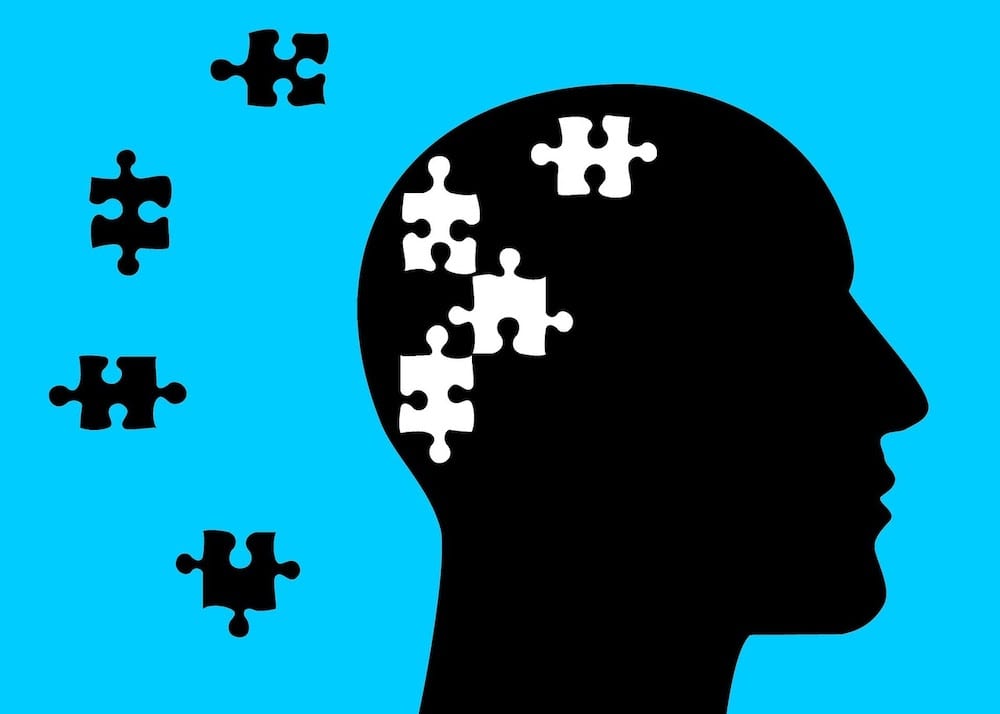
The American Psychological Association (APA) offers guidance to American institutions of higher learning regarding the courses that psychology majors should take. In all practical terms, this means that the APA wields a lot of influence over the process of deciding the proper way to learn human psychology. If you’re already enrolled in a degree-conferring school or plan to enroll in one, you’re well on your way.
But neither the APA nor university psychology departments can prevent you from accessing the knowledge, especially in the Information Age. In this section, we zoom in on the field and try to capture a realistic picture of what it takes to become an expert.
How Long Does It Take to Learn Human Psychology?
The length of time varies according to each learner’s level of commitment, the quality of his or her study plan, and the availability of resources.
It also depends on what you want to use human psychology for. There are roughly three tiers of expertise, each tier corresponding to one of the three major degree levels. It takes about four years to earn a bachelor’s, two additional years to earn a master’s, and four to six additional years to complete the requirements for a doctorate.
The equivalent of a bachelor’s curriculum will provide a satisfactory amount of general knowledge and research experience for most people. Independent learners, who don’t have to worry about Gen Ed requirements, can achieve this level of training in three years.
If you prefer to follow Malcolm Gladwell’s famous piece of pop psychological wisdom about success instead, then you should accumulate at least 10,000 hours of study and practice.
How to Learn Human Psychology: A Step-by-Step Guide
If you don’t plan to enroll in a psychology degree program, your roadmap to becoming a self-taught psychologist should hew closely to the following shape:
- Study big ideas in the history of psychology. What do we already know about the human mind and behavior and how do we know it? By digging into the history, you will learn whose shoulders you’re standing on, better understand what counts as psychological knowledge, and discern where the gaps are.
- Review the scientific method. At the core of all legitimate science is the scientific method, and the modern discipline of psychology is no different. The formulation of testable hypotheses is what separates the scientific work conducted in today’s psychology labs from the provocative but unverified theories of Freud and his ilk.
- Pick which pillar of human psychology research you want to lean on. To decide between, say, behavioral psychology and developmental psychology, you need to compare and contrast the assumptions, methods, and conclusions of behaviorists and developmentalists, and then sort out which approach best matches your worldview.
- Start designing psychology experiments. As you read more widely in your chosen subfield, you begin to develop a feel for what constitutes a good research question and a well-designed experiment. Before you know it, you will have the skills to convert the raw material of your own curiosity into scientific process and discovery.
The Best Human Psychology Courses and Training

Introduction to Psychology is consistently one of the most popular college courses, and campuses everywhere are teeming with psychology majors. The old-school route, passing through a traditional research university or liberal arts college on the way to a bachelor’s degree, remains a well-trodden path for learning human psychology.
But not by a longshot is it the only way. As the technology for disseminating the collected knowledge of psychology has improved, so the avenues available for learning it have increased. Whatever your budget and preferred method of instruction, there are human psychology courses you can take.
The Best Live or In-Person Human Psychology Classes
While academic psychology departments more or less have a monopoly on in-person courses, you don’t need to be actively enrolled at a university to get the classroom experience, or at least a simulation of one.
To start your university-style human psychology training right away, minus the cumbersome application process, there are two basic tracks you can follow.
À La Carte Track: Harvard Extension
- Name: Intro to Psychology
- Time: January 26-May 11, 2021
- Prerequisites: None
- Cost: $1,500
Whether you want to take the initial step toward a psychology degree program, or you simply want to learn more about psychology, this Harvard course will satisfy your needs. Though not in-person, the course does meet for two hours every week via live web conference, with each lecture devoted to a different branch of psychology.

"Career Karma entered my life when I needed it most and quickly helped me match with a bootcamp. Two months after graduating, I found my dream job that aligned with my values and goals in life!"
Venus, Software Engineer at Rockbot
The two required texts are a general psychology textbook and a work by Sigmund Freud. In addition to exercises assigned at regular intervals throughout the term, students are expected to complete two data projects, a midterm, and a final.
Transfer Credit Track: Hawkeye Community College
- Name: Intro to Psych, Developmental Psych, or Social Psych – Waterloo, IA
- Time: 15 weeks
- Prerequisites: None
- Cost: $603 per course
One affordable way to test the waters for a psychology major is through a community college transfer credit program. You don’t have to travel to Iowa for something like this, of course. All of the best community colleges in the United States offer a similar blend of general education and introductory psychology options for students on a budget.
For a chance to preview the inner workings of an academic psychology department before you commit to a four-year bachelor’s degree program, make sure to flip through the course catalog at a community college near you.
The Best Online Courses in Human Psychology
Except for their lack of structured research opportunities, online classes in psychology are functionally equivalent to university courses. For a comprehensive overview of all the best psychology research past and present, sign up for one of the two options below.
The University of Queensland (edX)
- Name: Introduction to Developmental, Social, and Clinical Psychology
- Time: 1-2 hours per week for 7 months
- Prerequisites: None
- Cost: $356.40
Actually a bundle of four separate intro courses, this series will add depth and substance to your first encounters with three major branches of psychology. Explore how developmental and social psychologists study the human mind under different biological and environmental pressures, and how clinical psychologists diagnose psychological disorders.
The last class in the bundle introduces students to research methods, covering the basics of experimental design, critical reading strategies, and scientific writing. By the end of the fourth course, you’ll have enough knowledge and training to start doing psychology research of your very own.
The Great Courses Plus
- Name: The Great Ideas of Psychology
- Time: 24 hours of content
- Prerequisites: None
- Cost: $20 per month after free trial
This is the omnibus of psychology courses, an epic series of 48 30-minute lectures covering everything that a typical Psych 101 course offers, and then some. After a single introductory lecture drawing the boundaries of psychology, Professor Daniel N. Robinson uses the remaining forty-seven to explore every nook and cranny.
Some of the lectures are organized around topics, like the ones on hearing, moral reasoning, and artificial intelligence. Others approach great ideas through the thinkers who made them famous, such as Pavlovian reflexes and Freud’s theory of repression.
The Best Free Online Psychology Courses
Free classes of any kind often come with a catch, but as long as you’re willing to give your email address to either of the online course providers listed below, you can have access to these college-level psychology classes for the cost of an Internet connection.
San Jose State University (Udacity)
- Name: Intro to Psychology
- Time: 4 months
- Prerequisites: None
- Cost: Free with Udacity account
Three instructors take turns guiding students through six major areas of research in psychology, from bread-and-butter topics like development, consciousness, and memory, to more trendy lessons on drugs and the brain. But this is not just rote memorization of famous experiments. Students also learn about research methods and do interactive assignments.
University of Cape Town (FutureLearn)
- Name: What Is a Mind?
- Time: 6 weeks
- Prerequisites: None
- Cost: Free to audit
Any course whose title takes the form of a question is bound to be thought-provoking, and this one is no exception. Professor Mark Solms approaches this endlessly fascinating question through an interdisciplinary lens, one eye focused on its philosophical dimensions and the other eye inhabiting the psychologist’s perspective.
For three hours each week, students explore whether techniques in the emerging field of neuropsychology can get us any closer to answering questions about the human mind that philosophers have been working on for millennia.
The Best Human Psychology Books
Some scientific subjects are so remote from human affairs that reading about them is a slog. Not so for psychology books, which frequently rise to the top of bestseller lists on the strength of their profound insights into the mysteries of human behavior. Psychological experiments that go against common sense make for great storytelling.
The two selections below barely scratch the surface, but each represents a viable place from which to start exploring the wide variety of books on psychology.
50 Great Myths of Popular Psychology: Shattering Widespread Misconceptions about Human Behavior, By Scott O. Lilienfeld, Steven Jay Lynn, John Ruscio, and Barry L. Beyerstein (2009)
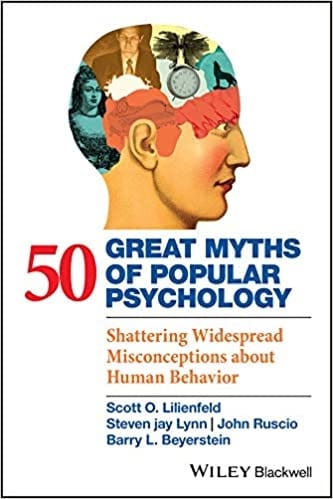
Anyone serious about learning human psychology should start with this book. Many students rush into the scientific study of psychology without fully realizing what they’re getting into, and then are surprised to discover how different it is from the folk wisdom that sparked their interest. In this way, the popularity of psychology is both a blessing and a curse.
The authors roam far and wide through the human psyche, debunking myths about learning, personality, emotions, and more. If you’ve ever heard that opposites attract, that people only use ten percent of their brains, or that stress causes ulcers, then you’re likely holding a lot of junk science in your head, and you owe it to yourself to separate fact from fiction.
Thinking, Fast and Slow, By Daniel Kahneman (2013)
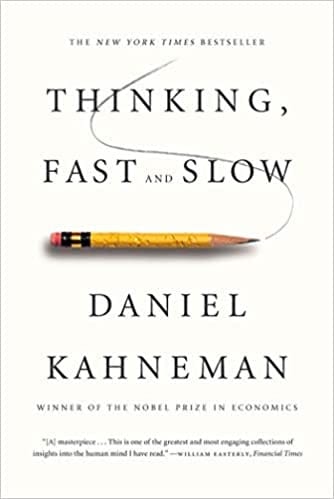
An instant classic of cognitive psychology, Thinking, Fast and Slow illustrates just how powerful good psychology research can be. Nobel Laureate Daniel Kahneman uses his keen intellect and his skill for communication to expound the elegant idea that human beings have two systems for thinking and making decisions, one fast and the other slow.
By identifying and explaining how each of the two systems work, Kahneman lays the groundwork for readers to sort out their own cognitive biases, make smarter choices, and join with others to improve social and professional networks. This book goes to show that a little knowledge about the human mind can have huge ramifications for humanity.
The Best Online Human Psychology Resources
The Internet is full of great resources for aspiring students looking to become psychologists. Whether you want to look up a psychological concept, workshop a project proposal, or learn about the big ideas and experiments driving psychology research today, there’s somewhere for you to turn.
Simply Psychology
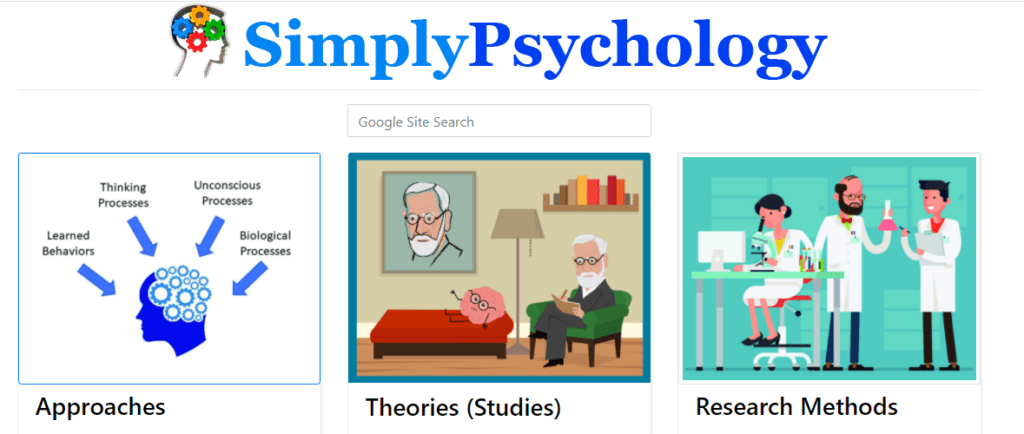
Don’t be fooled by the name. Just because Simply Psychology is simple to navigate does not mean that it oversimplifies the information you’re trying to look up. With separate pages for influential theories, popular approaches, proven research methods, and academic skills, this website is a faithful companion for any psychology major.
TED Talks on Psychology
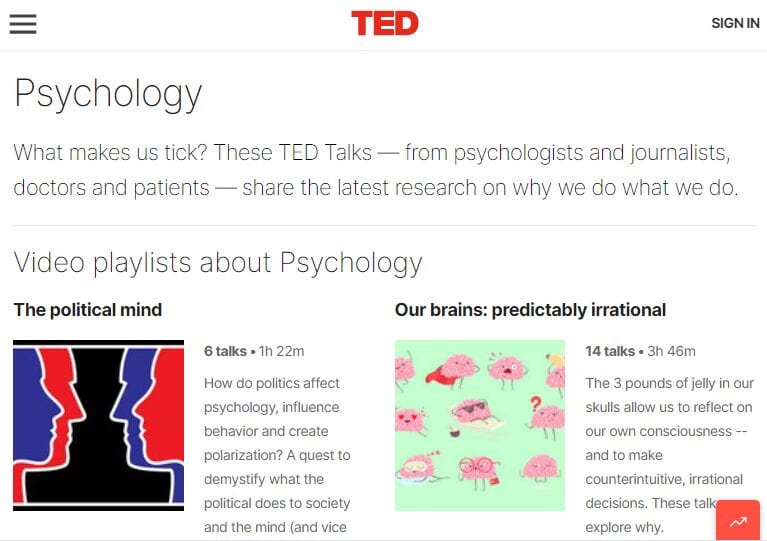
If you really want to geek out about this stuff, you can’t do much better than checking out all the mind-blowing talks on the Psychology page at TED. Make your way through a curated playlist on one of four subtopics, or scroll through the entire collection of 165 videos.
Any of them are worth your time, but if you’re looking for somewhere fun to start, try Steven Pinker on language habits or the blank slate, Brené Brown on shame or vulnerability, or Oliver Sacks on the psychology of hallucination. Watching these intellectual giants strut their stuff is a great way to engage your curiosity or formulate new questions.
Should You Study Human Psychology?
It is easy to see why the prospect of learning human psychology excites so many people. Whether you’re struggling with your own mental health or wrestling with eternal questions of human nature, psychology is a tempting place to search for answers. There is arguably nothing more human than being introspective about the human mind.
But the science of human psychology formalizes and systematizes introspection to a much greater extent than most students are prepared for. You need to be sure about your passion before devoting yourself to several years of study and research.
And if your passion really burns bright, you can go the extra mile with an online master’s degree in psychology. Or you can look into how to become a professional psychologist.
The fact remains that many mysteries of mind and behavior remain unsolved. If you want to be the one to solve them, it’s up to you to take the next step.
About us: Career Karma is a platform designed to help job seekers find, research, and connect with job training programs to advance their careers. Learn about the CK publication.



